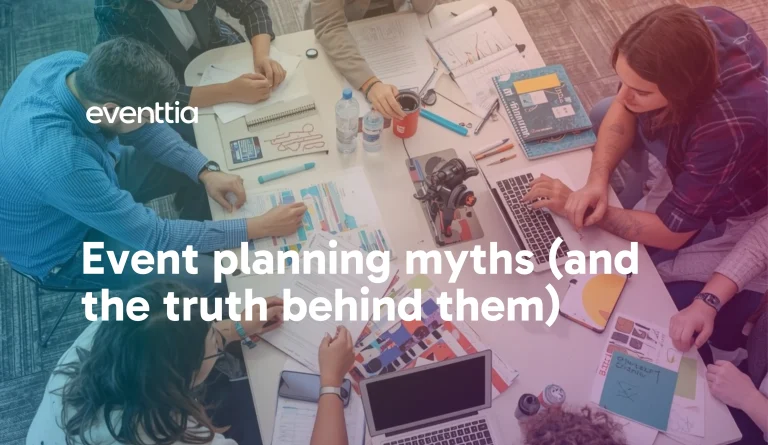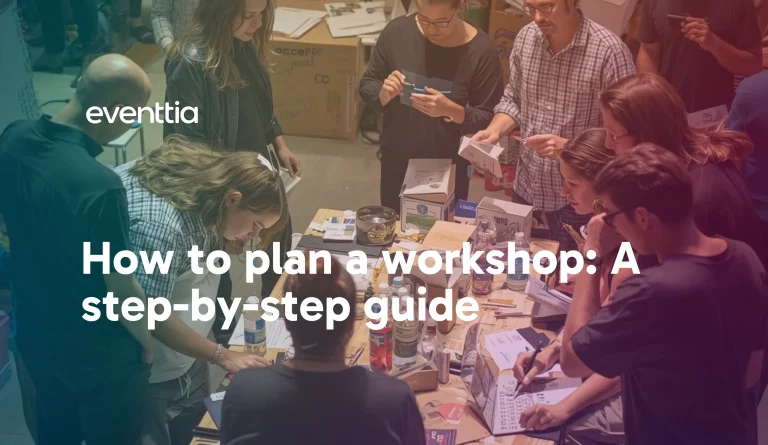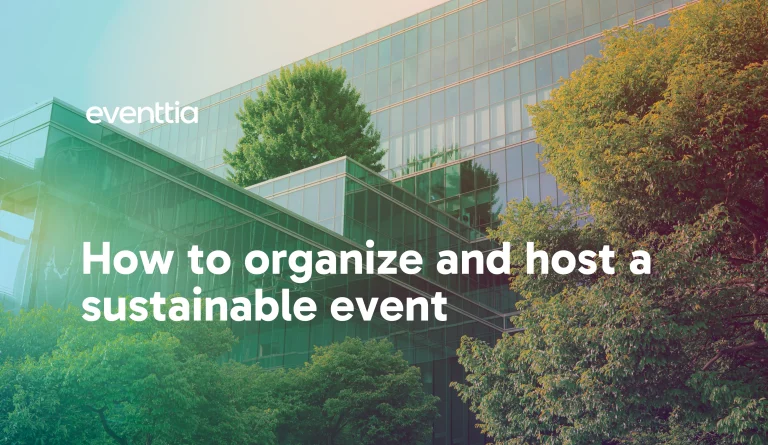Customers don’t buy from people that they don’t trust and there’s plenty of evidence to prove it. A recent report from LinkedIn found that trust is the #1 factor in closing deals – above ROI and price. Whilst in another study by Accenture, 43% of subscribers left their current provider company when they lost trust in the brand.
The importance of trust cannot be understated. It’s the foundation of every relationship and is what binds the buyer and you together. But in today’s world, where buyers are busier than ever and have access to an abundance of easily accessible information along with different options to choose from, it has suddenly become a lot tougher for brands to get their time and build trust with them.
Creating human connections
The online world is a small place and unfortunately, that makes standing out from the crowd even harder. Your brand is never alone and that means for many buyers they’ve heard it all before. They want more than just a pitch about how your business can offer X, Y, and Z.
However, all is not lost. Because in today’s digital world, we’re crying out for human connections and interactions which take us away from our screens. Because when we talk about trust being the foundation of every relationship, there’s no better way of building it the old fashioned way, one where we communicate in-person.
Event marketing
At the heart of establishing this connection between brands and consumers is event marketing. This is the promotion of a brand, service, or product (not to be confused with the promotion of an event) through in-person engagement. From workshops to launch parties and conferences, there’s a wide variety of events you can choose from. What they all have in common is that they entertain and engage attendees aka your buyers.
To explore this further here are 3 reasons why you should consider event marketing as a way of gaining buyers’ trust:
- Digital channels such as SEO, email campaigns, or paid search can only do so much. A well-run event adds value and educates your attendees. So, if you’re able to do this you’re going to get buy-in from your buyers.
- Events offer a unique opportunity – to have all of your buyers under one roof away from all the usual distractions of the digital world. They give you face-to-face time with your most important buyers – critical for building trusting and establishing long-term relationships.
- Above all, events create engagement with your buyers. As we discussed earlier, trust is the foundation of any relationship, so if you’re able to create an engaging event that is valued by your attendees – then it is only natural that this will build trust.
Events provide a great platform for you to connect with your buyers on a personal level. This is the straightforward part, now the more complicated part is to do with how you can build trust with your buyers when they attend your events. But fear not, because with these 10 steps you’ll discover how to develop trust with your buyers from the beginning of the event right through to the end.
Understand your attendee
Knowing who your ideal customers are is the first step to building any impactful business and the same applies to events. Events need to be built around your attendees because this increases the chances of getting their attention and laying the foundations for building personal connections with them.
The best way to do this is to create an attendee persona. This is a representation of your ideal event guest based on market research and real data that you’ve collected. Not too far away from a buyer persona, this will include their backgrounds, demographics, pain points, and any other characteristics. However, it will also include some event related information including:
Content-related interests: Speakers and event topics are always a powerful incentive for people to attend. What do they want to learn about? What are some of the major pain points they’re facing? These are all questions that you need answers to. The first logical step is to look through your content marketing strategy, talk to any clients or prospects, and find the topics that are on your attendees’ minds.
Pain points: Leading on from the last point, it’s vital that you can identify the major challenges and pain points facing your attendee personas, and then more importantly provide them with the solutions. This requires you to conduct as many in-depth interviews as possible with your prospects.
Why are they attending?: This could be for a variety of different options, maybe they’re a massive advocate of your brand or maybe they’re interested in networking. What’s important is that you know exactly why your attendee personas are attending an event so that you can then design an experience built around them.
Every event has different objectives be it to educate, generate leads, or enhance brand awareness. And as a result, you will have different types of attendees from leads to customers. Every event is completely different and that’s why it revolves entirely around attendees. Ultimately, the more you know about your attendees, the more value you can create an event designed exactly to their requirements.
Build the experience around your attendees
The ultimate goal of any event is to add value to your attendees and to do this you need to deliver a special experience. This plays a big part in shaping your attendees’ perception about your brand, creating meaningful and long-lasting relationships. There’s plenty of examples to choose from but perhaps the biggest of them all is Dreamforce.
Every year 170,000 people flock to San Francisco for Salesforce’s event which includes networking and learning with 2,700 sessions and workshops, and multiple keynotes. Up to now, this probably sounds like any other large event but what sets Dreamforce apart from the rest is the loyal customer base that it has created.
The reason for this is the customer centric stance that Salesforce has taken which in other words can be translated to: “It’s all about you, the customer.” Salesforce have crafted together an event which has something for everyone from a keynote with Barack Obama to a live performance from Metallica. They even create maps which are specifically designed for your industry.
All of these factors combine to create an attendee experience that is customer-focused and provides a huge wow factor. By personalizing and tailoring your events to your attendees, like at Dreamforce, you’re going to see a big spike in their engagement level. The smaller details really do go a long way.
Create quality content
Events are powerful knowledge hubs that gather people from all walks of life who are ready to learn. Having access to fresh industry insights and relevant information is one of the reasons people attend events. With so much content being churned out, it’s down to you to produce content that will make people notice and start talking about your brand.
Arguably the most important part of this is selecting the right speakers who will set the entire tone of the event and be the make or break factor when it comes to ticket sales. An engaging and memorable speaker line-up requires you to take a lot of different factors into account.
When it comes to the speakers you need to check that they have all of the right qualities such as: being able to address your attendees pain points and provide them with solutions, making sure that the speaker has the right qualities to keep the attendees engaged and entertained, making sure that they are influencers, and finally, making sure that they have the right level of experience for your event.
You also need to make sure that the speaker lineup is diverse and can provide a different perspective on the conservation. This should not only include external speakers but also your own employees and executives who can give their own narrative. And when it comes to the external speakers don’t just focus on the big brands, bring in start-ups and small businesses.
Finally make sure that your speakers have the right tools to deliver a great speech that is not only engaging for your attendees but also portrays your brand image. That’s why you need to provide your speakers with the complete picture as to what your brand represents.
Hassle-free logistics
From accessing the event website, to travel arrangements and check-in all of your logistics have to be run to a tee. And there’s never any room for error. That’s why, before anything else, you need to make sure that you deliver a well-organized event where attendees are having a great experience and are unaware of any chaos behind the scenes. To get this right there’s a number of different elements that you need to get right.
Map out your event site: Figure out every single element on your event map. Where will your attendees enter and exit? Are there going to be any areas with a lot of foot traffic? Are there enough bathrooms in a certain area? By creating an event map you will all possibilities mapped out meaning that you can avoid any major hiccups once your event is live.
Provide a smooth registration and check-in experience: Avoid queues at all costs. With the help of mobile apps, you can streamline the registration process by allowing attendees to check-in before they arrive. An easy check-in streamlines the registration process, easing the workload on your staff and allowing your attendees to get straight into the event.
Have back-up plans: Try and prepare yourself for any eventuality that could occur. For every possible scenario you need to have a contingency plan. Make sure that these are communicated across all of your staff so that if they’re called upon they can quickly take action.
Communicate live updates: Scheduling changes can happen at any time and it’s your responsibility to be flexible and responsive should they take place. It’s important that you’re able to update your attendees with any changes or updates throughout the event.
Meaningful engagement
The biggest indicator of the overall success of an event is engagement. It’s all about creating an experience away from the norms of what your attendees expect. Any engaging event should challenge your thinking, provide you with new and valuable information, and above all excite you. When an attendee is engaged that they’re satisfied with your event.
At the center of this is your staff. As the face of your company at the event they play a huge in mixing and engaging with your attendees. This is why it is vital that they know how to effectively interact with the attendees and provide them with an experience that is special.
It’s important that staff is approachable, knowledgeable, and helpful to the attendees at the event. Whilst this might not sound like a lot it goes a huge way in engaging with your attendees. For many, this is likely to be their first exposure to your brand and your staff play a huge role in defining this.
To help your employees with this run some workshops with them before the event so they know what to expect and how they should act in a number of different scenarios.
Main Takeaways
- Other areas of marketing fail to bring the added value that events offer. Buyers need to be educated with valuable and groundbreaking content that can help them to make the big decisions. They never want to hear a pitch about your business and why it is so good.
- Event marketing provides you with a new dimension to offer something different to your buyers. In a cluttered world, we’ve lost our human touch. The way we should interact with buyers is to effectively engage and build genuine relationships with them.
- Before the event, it is vital that you spend the time to first understand who your attendees are, and then identify how you can design an event around their interests. Use your knowledge and use this to deliver the right narrative at your event.
- Always consider that your event needs to add value to your attendees. This can be through any means such as content, product launches, or the attendee experience. Just make sure that what you’re doing makes you stand out from the crowd.
- Engaging with your attendees is key to building trust. Always show them how valued they are to you and make the event as interactive as possible. This goes a long way in establishing a strong relationship built on trust.
- Finally, always deliver what you set out to do. This is a basic expectation from your attendees who will be attending your event based on what you’ve promised them.
Discover how Eventtia helps world-leading brands digitize and scale their events
Learn moreShare



